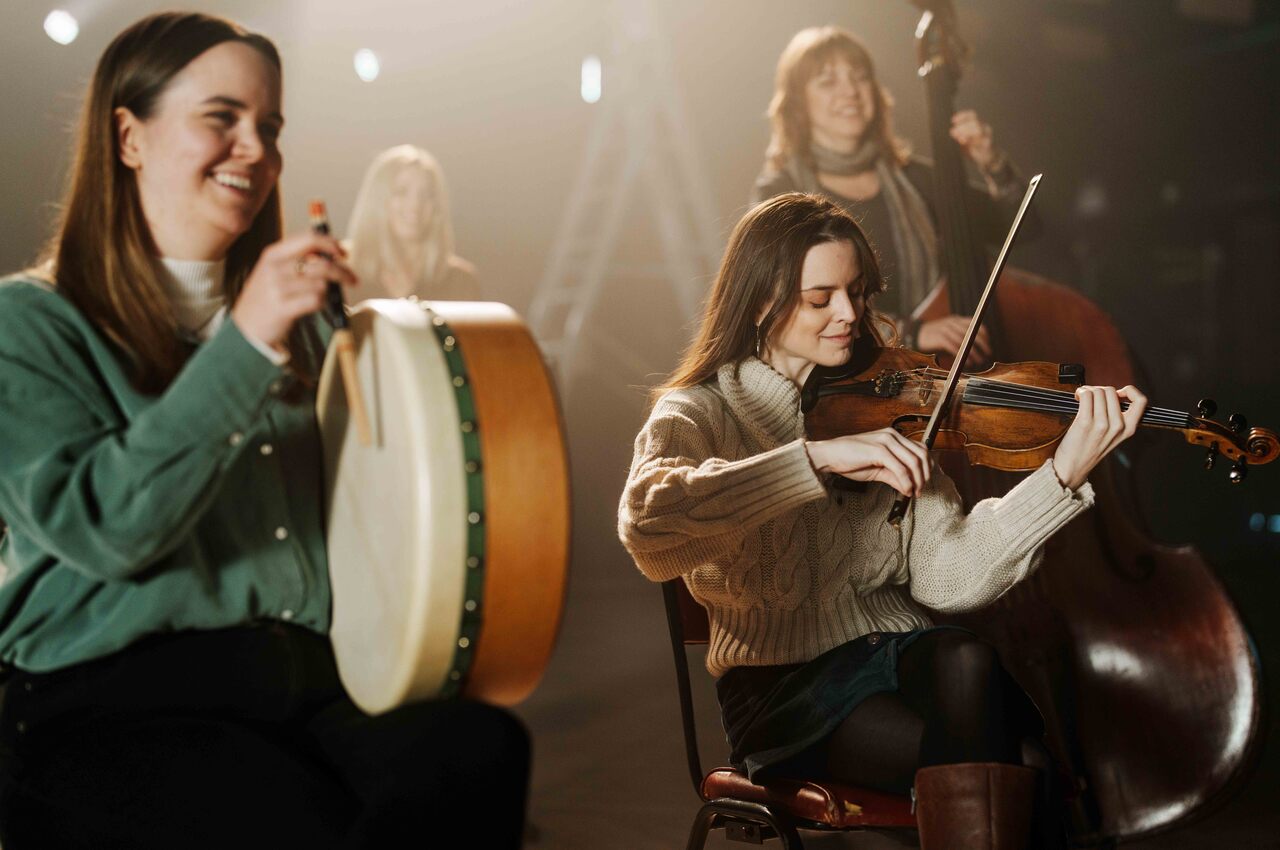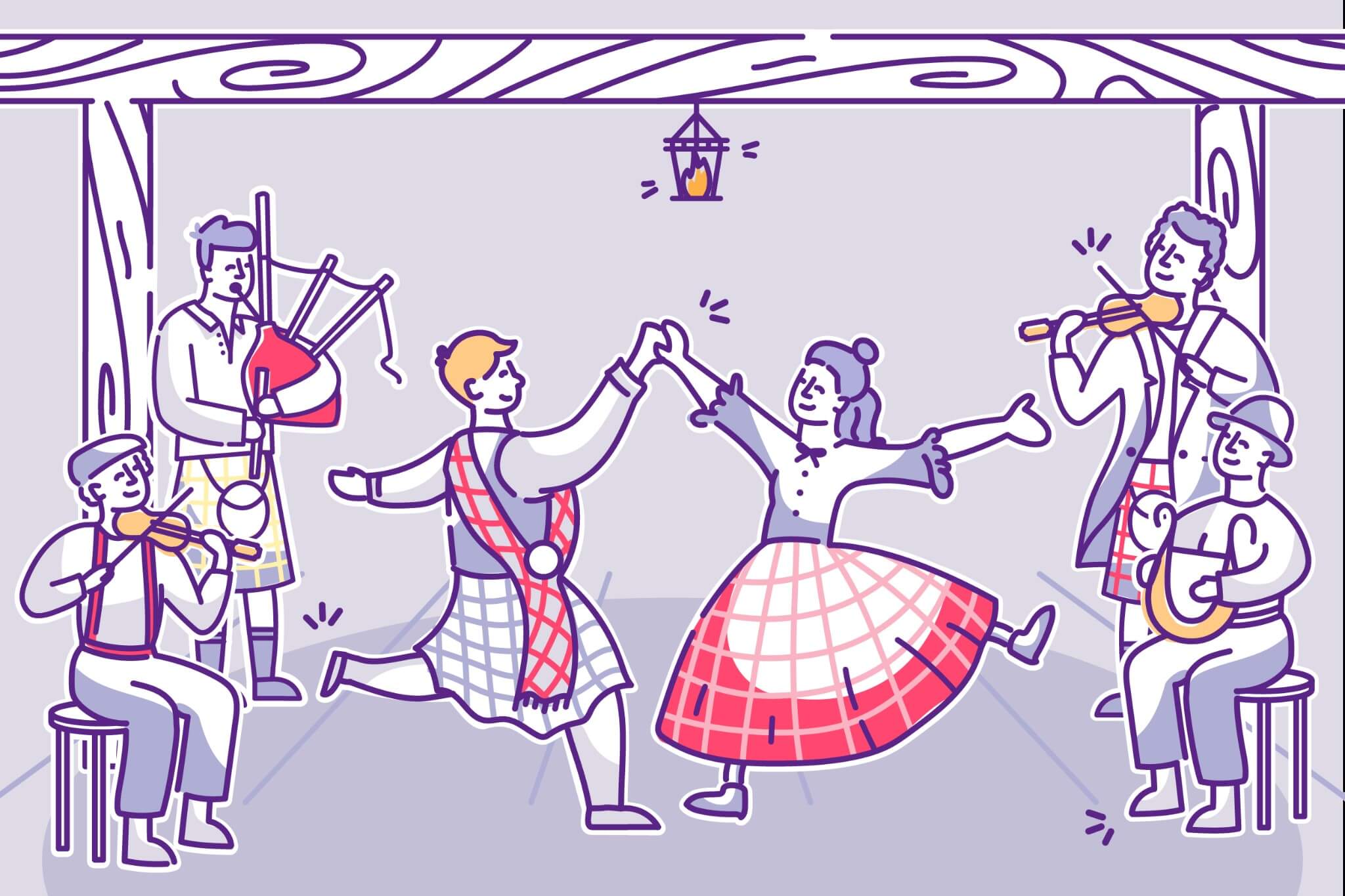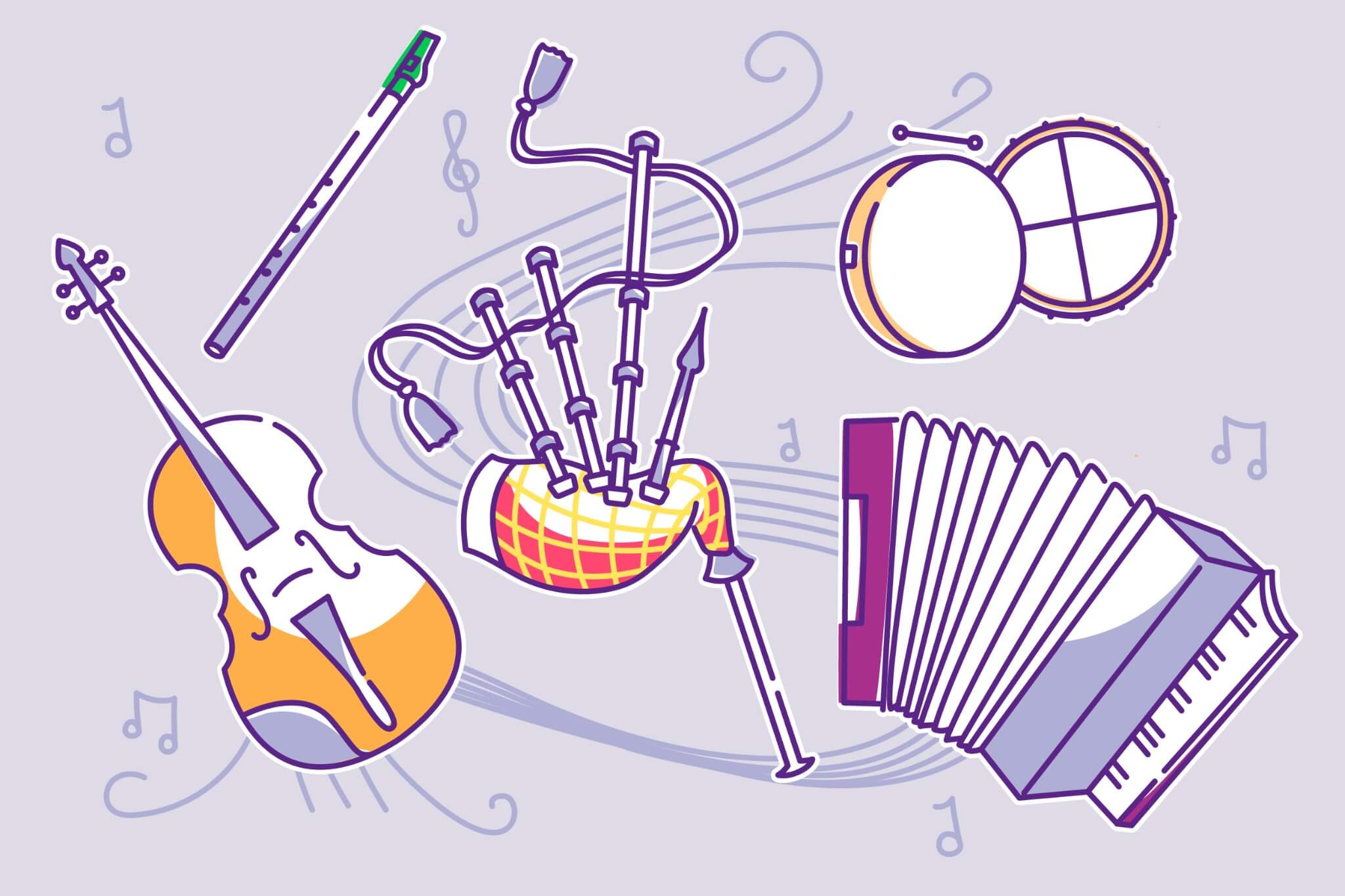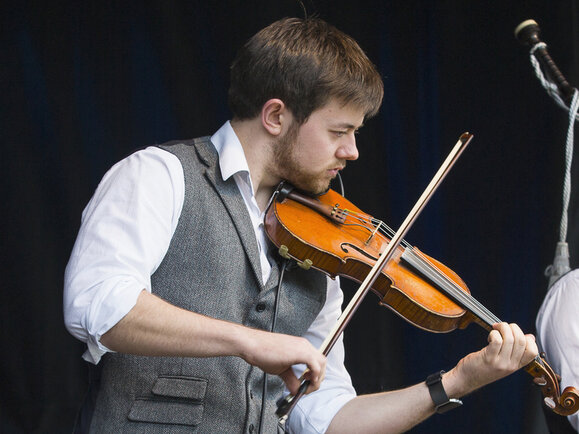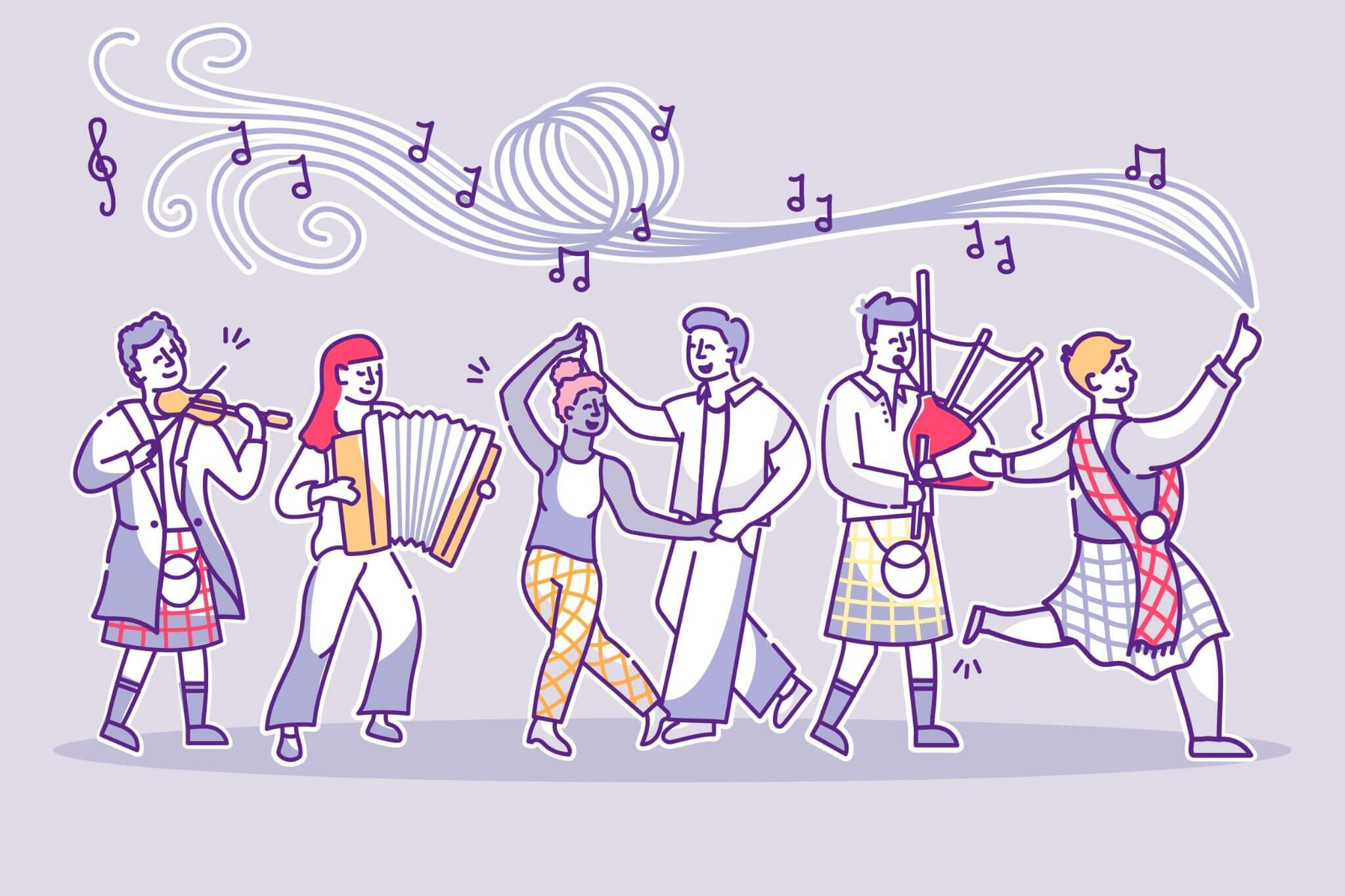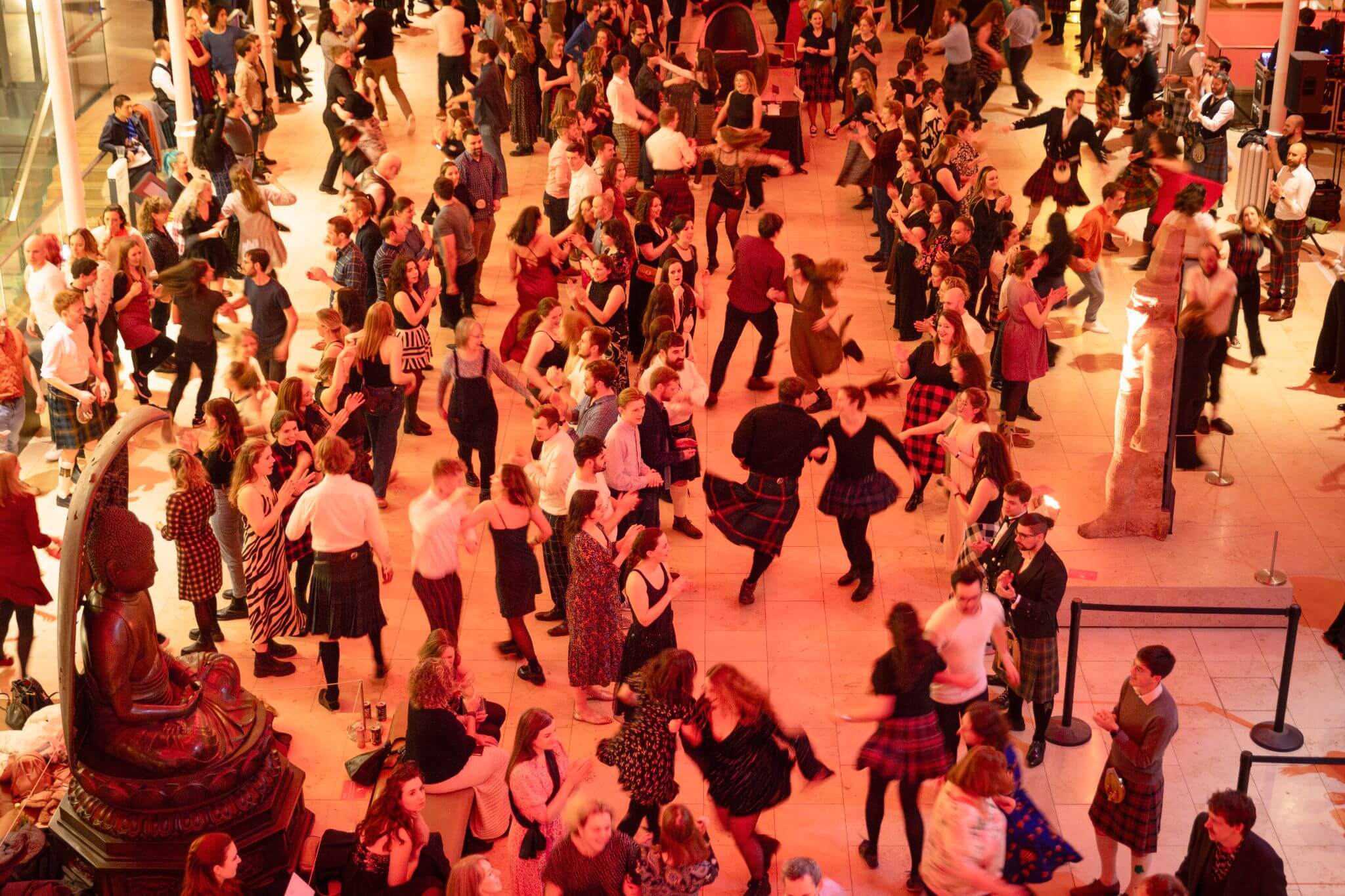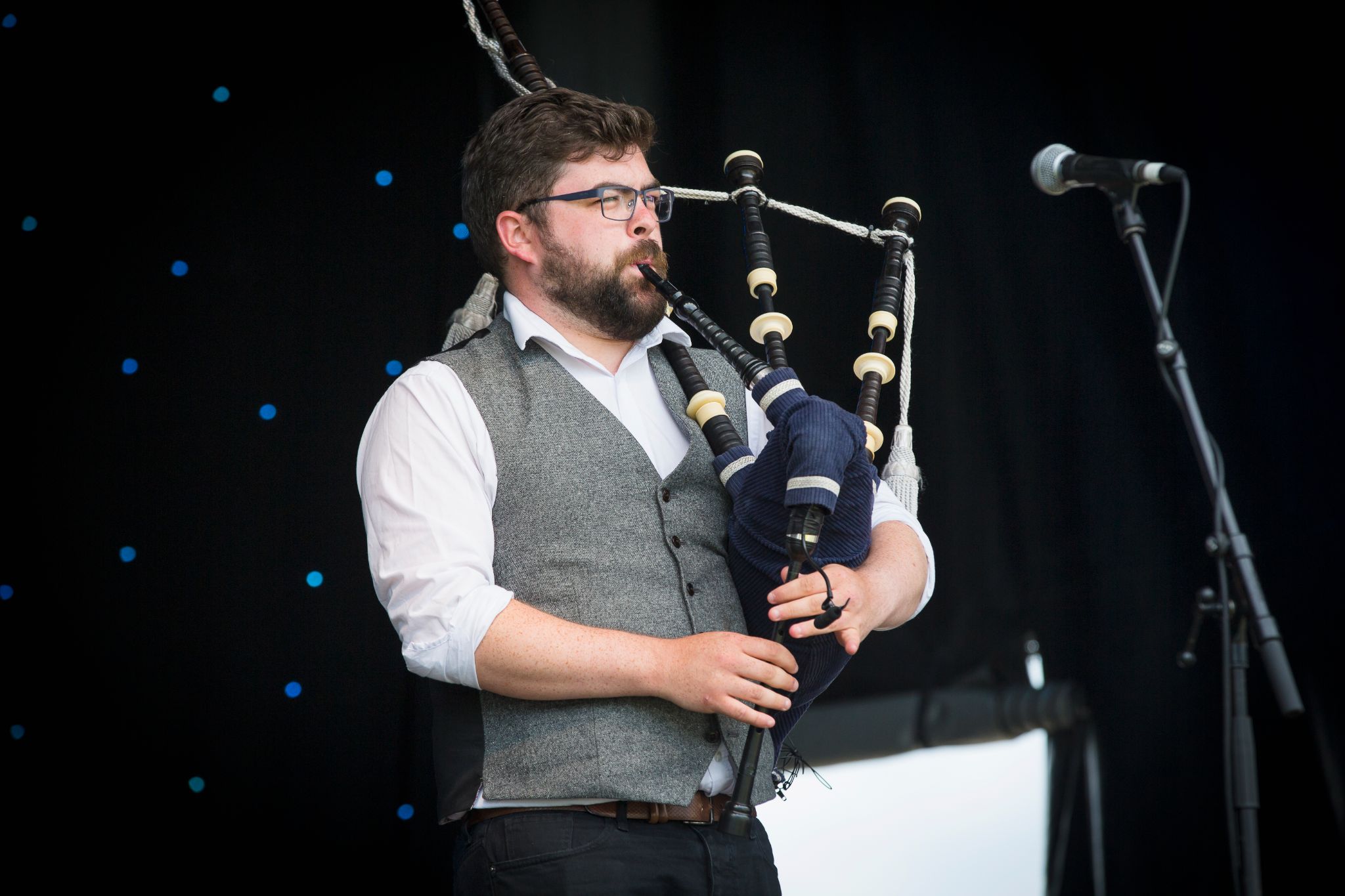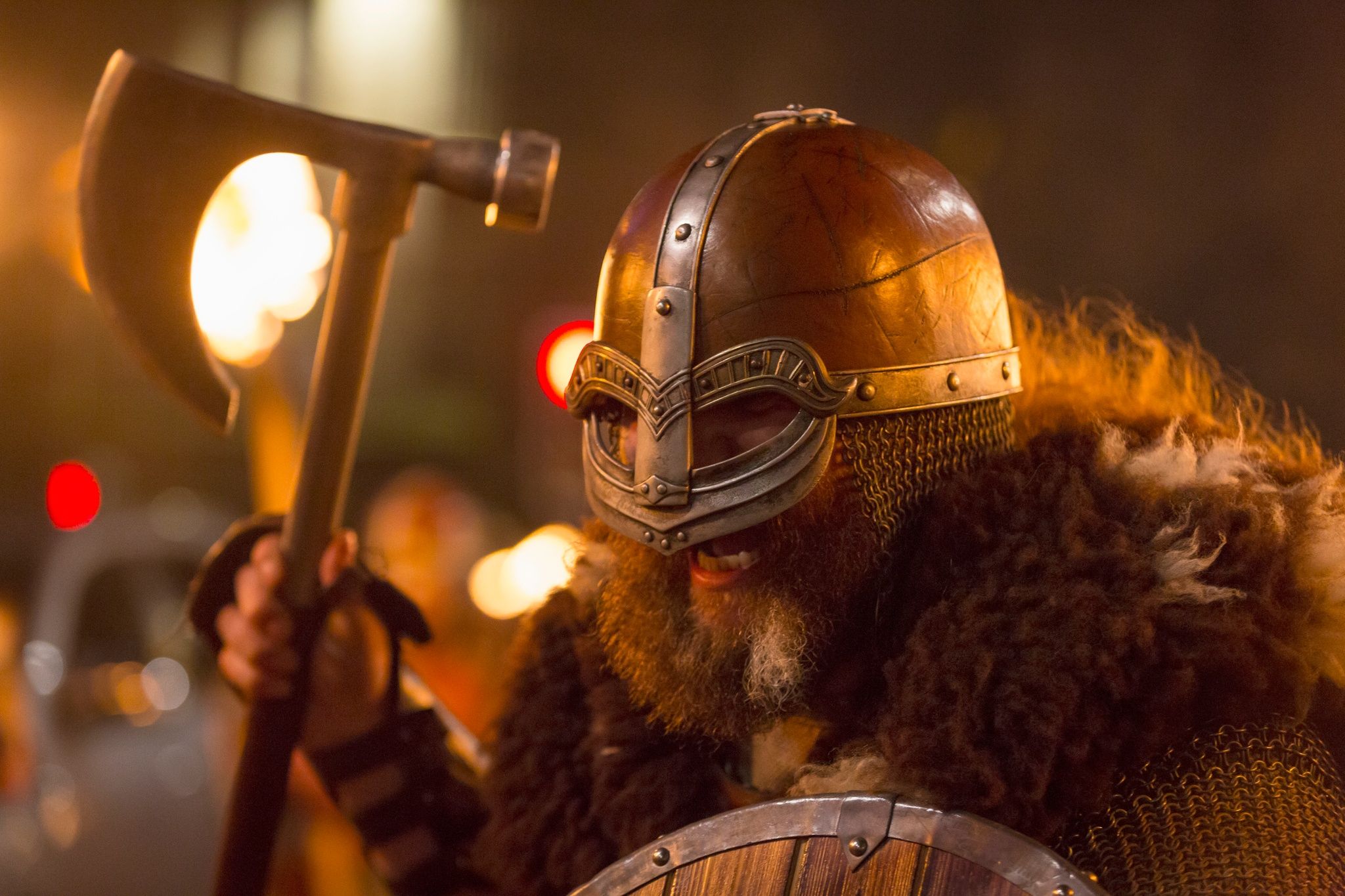
A contemporary band playing at a live music gig
© VisitScotland / Tessa Minshull
Feel Scotland's rhythm in spring 2025
- Mull Music Festival, 24 - 27 April, Argyll
- Shetland Folk Festival, 1 - 4 May, Shetland
- Edinburgh Tradfest, 2 - 12 May, Edinburgh
- SkyeLive, 8 - 10 May, Isle of Skye
- Orkney Folk Festival, 22 - 25 May, Orkney
- Knockengorroch World Ceilidh, 22 - 25 May, Dumfries & Galloway
- Islay Festival, 23 - 31 May, Argyll
Hear the sounds of summer 2025
- The Reeling, 6 - 8 June, Rouken Glen Park, Glasgow
- The Eden Festival, 12 - 15 June, Moffat, Dumfries & Galloway
- Ceòlas Summer School, July, South Uist, Outer Hebrides
- Stonehaven Folk Festival, 10 - 13 July, Stonehaven, Aberdeenshire
- Tiree Music Festival, 11 - 13 July, Tiree
- Hebridean Celtic Festival, 16 - 19 July, Isle of Lewis, Outer Hebrides
- Eilean Dorcha Festival (EDF), 25 - 26 July, Isle of Benbecula, Outer Hebrides
- ButeFest, 25 - 27 July, Isle of Bute
- Belladrum Tartan Heart Festival, 31 July - 2 August, near Inverness, Highlands
- Piping Live!, August, Glasgow
- World Pipe Band Championships, 15 - 16 August, Glasgow Green, Glasgow
- Mull of Kintyre Music Festival, 20 - 24 August, Campbeltown, Argyll
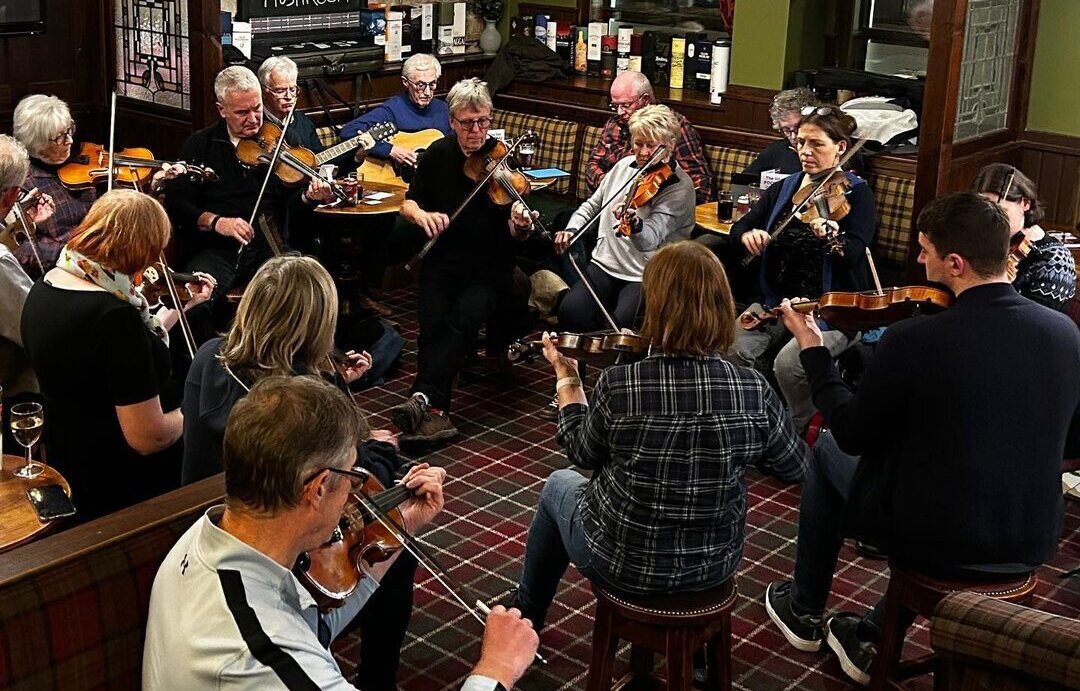
A trad music session underway at the Islay Inn
© @theislayinn
Catch live music in autumn 2025
- Royal National Mòd, 10 - 18 October, Lochaber
- Glasgow Shanty Festival, October, Glasgow
- Autumn Trad Festival, 24 - 25 October, Newton Stewart
- Scots Fiddle Festival, 14 - 16 November, Edinburgh
Feel the beat in winter 2024/2025
- Skinny Lister, 6-7 December, Aberdeen and Edinburgh
- Skipinnish, 20 December, Perth
- The Red Hot Chilli Pipers, 22 December, Forfar
- Mànran, 28 December, Stirling
- Celtic Connections, 16 January - 2 February, Glasgow
- Oysterband, 17 January, Glasgow
